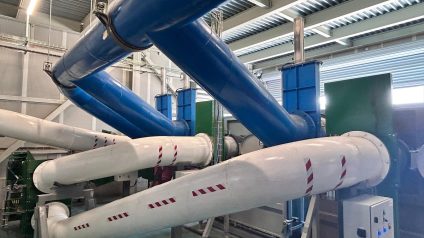Von der Leyen: "We are aligned on the need for a global hydrogen market based on rules, transparent and without distortions, with reliable international standards"
The energy dialogue launched by the European Union and Uruguay
(sustainabilityenvironment.com) – The European Union and Uruguay have intensified their cooperation in the energy transition. A step forward that comes today, at the EU-CELAC Summit in Brussels. Energy Commissioner Kadri Simson and Uruguay’s Foreign Minister Francisco Bustillo Bonasso signed a new memorandum of understanding this morning on renewable energy, energy efficiency and renewable hydrogen. The agreement is part of the European Union – Latin America and the Caribbean investment agenda, presented yesterday by the EU executive and defines a number of key objectives.
“The EU and Uruguay share the ambition to increase the use of renewable energy sources,” explained European Commission President Ursula von der Leyen. “We are aligned on the need for a global, rule-based, transparent and distortion-free hydrogen market with certification schemes and reliable international standards to support the transition to clean energy. This memorandum of understanding provides us with a basis to guide and intensify our work on these issues, as we both aim to achieve climate neutrality by 2050”.
read also Investments in renewables: they must triple in developing countries
The Memorandum identifies a number of areas of cooperation including actions and policies to promote energy efficiency, and a comparison on renewable energy, renewable hydrogen and its derivatives. More specifically, in the field of research and regulation, cooperation includes work on definitions, methodologies, sustainability rules, certification systems and measures to stimulate technological progress and good practice. But the EU and Uruguay will also work together to target investment in these critical areas and to support the development of a regulatory and policy framework conducive to the development of the renewable hydrogen industry and its derivatives on both sides.













